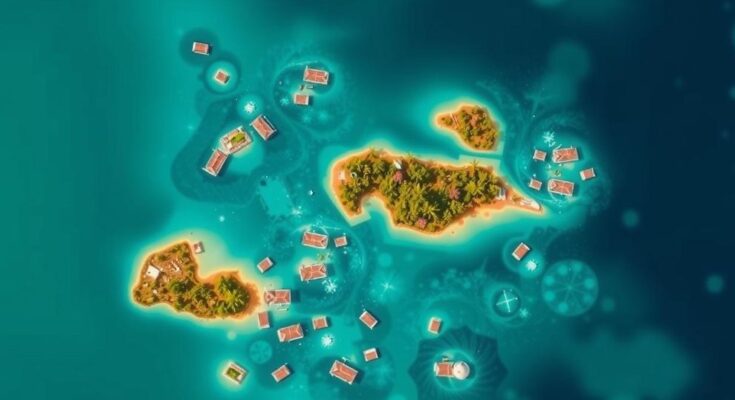Vanuatu’s attorney-general, Arnold Kiel Loughman, announced that the Pacific islands’ climate change case at the U.N. court aims to achieve a moral ruling, emphasizing collective global responsibility rather than placing blame. Over 130 nations support this initiative for an ICJ advisory opinion on states’ obligations to combat climate change. The case represents a crucial step for small island nations facing severe climate impacts, seeking greater access to climate finance and accountability from major emitters. Public hearings are set to begin on December 2, 2023.
Pacific nations are optimistic that their climate change case at the U.N. court will prompt substantial action and overcome the failures of international negotiations, according to Vanuatu’s attorney-general, Arnold Kiel Loughman. In an interview, he emphasized that the case at the International Court of Justice (ICJ) is aimed at achieving a ruling that carries moral authority rather than assigning blame. “It’s not about suing a particular state or a particular group of states,” Loughman remarked. “It’s also not just about the small island countries of the Pacific or the Caribbean or anywhere. It’s for the global community.” The 2023 initiative saw over 130 nations endorse Vanuatu’s call for an ICJ advisory opinion concerning states’ obligations under international law to combat human-driven climate change, as well as the consequences of inaction. Vanuatu, which comprises approximately 330,000 inhabitants and is located about 1,750 kilometers east of northern Australia, has also advocated for an emissions levy on global shipping. The ICJ’s ruling, while nonbinding, is eagerly anticipated, especially as both China and the United States— the largest greenhouse gas emitters—did not support the U.N. General Assembly resolution seeking the advisory opinion. The public hearings are scheduled to commence on December 2, following the court’s receipt of a record 91 written statements from various governments and organizations, along with numerous responses to the initial submissions. Loughman indicated that both sides are already aware of opposing arguments: “Basically, they’re saying they shouldn’t be liable.” Vanuatu’s leadership in this case highlights the plight of small island nations, which contribute minimally to global greenhouse gas emissions yet face the dire consequences of climate change, including heightened storm intensity and sea-level rise. Access to climate finance remains a significant concern for these nations. Loughman expressed frustration over the lack of funding despite extensive COP meetings, stating, “We’re not seeing anything. We’re hoping it [an ICJ opinion] would provide some moral authority. A decision coming from such an institution can’t be ignored.” The Intergovernmental Panel on Climate Change has affirmed that human activity has unequivocally led to global warming, with average temperatures in the last decade being 1.1 degrees Celsius higher than those recorded between 1850 and 1900. The report stresses that while the goal of limiting temperature increase to 1.5 degrees Celsius remains achievable, urgent action is necessary as time is running out.
The case initiated by Vanuatu at the International Court of Justice seeks to address the urgent issue of climate change by clarifying international obligations regarding greenhouse gas emissions. As small island nations often suffer the most severe impacts of climate change, this legal action is pivotal not only for those nations but also for the broader global community. The ICJ, located in The Hague, serves as an essential forum for resolving international legal disputes and can potentially provide legal clarity on state responsibilities concerning climate action.
In conclusion, Vanuatu’s endeavor in bringing a climate change case to the International Court of Justice represents a significant step towards establishing global accountability for climate inaction. With widespread support from nations and hopes of influencing discussions on climate finance, this case could provide a critical legal and moral framework that highlights the obligations of all states to address and mitigate the impacts of climate change. The outcome may not only affect small island nations but might also prompt more assertive international actions against climate threats.
Original Source: www.benarnews.org




